Physical Address
30 N Gould St Ste N Sheridan, WY 82801
Physical Address
30 N Gould St Ste N Sheridan, WY 82801
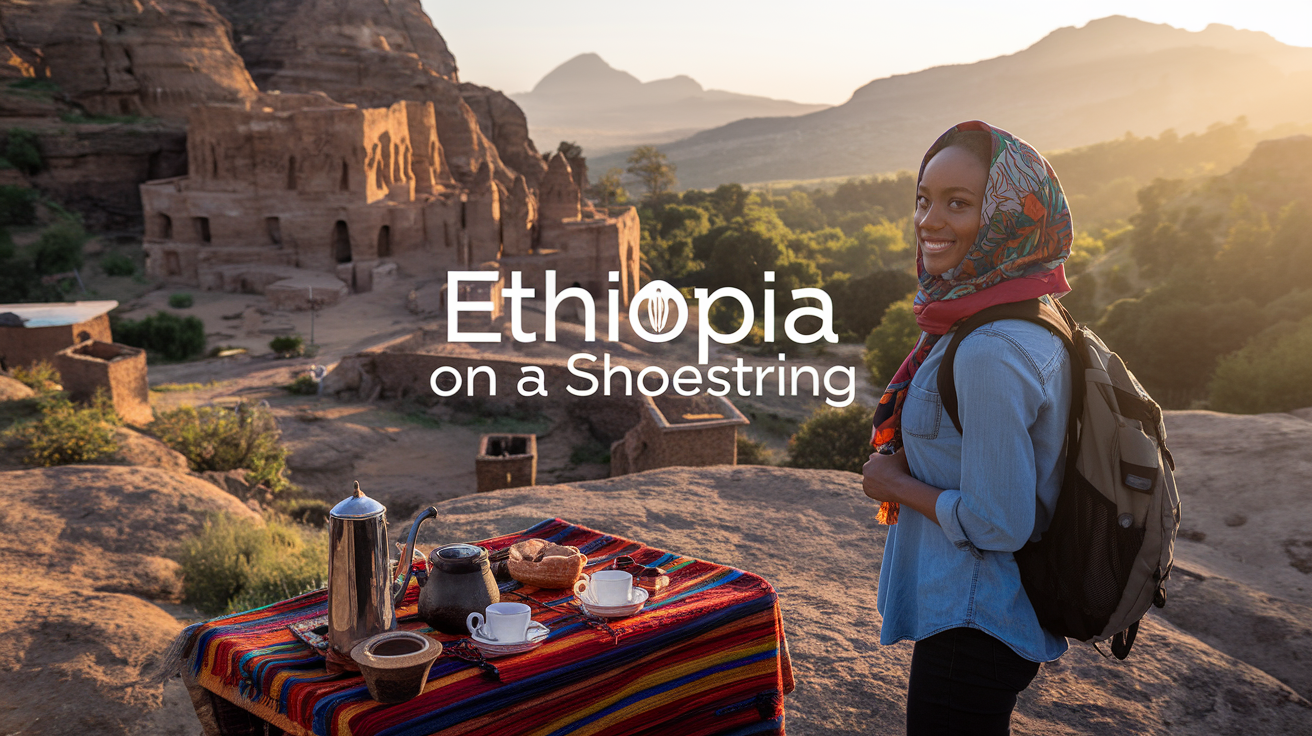

Dreaming of an African adventure but worried about the cost? Look no further than Ethiopia – a hidden gem that offers a wealth of cultural experiences without breaking the bank. 🇪🇹✨
Imagine exploring ancient rock-hewn churches, witnessing breathtaking landscapes, and immersing yourself in a rich tapestry of traditions – all while keeping your wallet happy. Ethiopia, often overlooked by budget travelers, is a treasure trove of affordable experiences that will leave you awe-struck and culturally enriched.
In this comprehensive guide, we’ll unveil the secrets to experiencing Ethiopia’s wonders on a shoestring budget. From navigating transportation and finding wallet-friendly accommodations to savoring local cuisine and discovering free cultural attractions, we’ve got you covered. Get ready to embark on an unforgettable journey through Africa’s cultural wonderland without emptying your savings account!

For budget-conscious travelers, timing your visit to Ethiopia is crucial. The best time to explore this cultural wonderland without breaking the bank is during the shoulder season, which falls between March to May and September to November. During these months, you’ll enjoy pleasant weather and lower prices on accommodations and activities.
| Season | Months | Budget-Friendly? | Weather | Crowds |
|---|---|---|---|---|
| Shoulder | Mar-May, Sep-Nov | Yes | Mild | Low |
| High | Oct-Jan | No | Dry, Cool | High |
| Low | Jun-Aug | Yes | Rainy | Low |
Avoid the high season (October to January) when prices soar due to perfect weather conditions and major festivals. While the low season (June to August) offers the lowest prices, heavy rainfall can hinder your travel plans.
Obtaining an Ethiopian visa is relatively straightforward and budget-friendly. Most travelers can apply for an e-visa online, which costs $52 for a single-entry, 30-day tourist visa. Here’s a quick rundown of visa options:
Remember to factor in visa costs when planning your budget. It’s advisable to apply for the e-visa at least a week before your trip to avoid any last-minute hassles.
To help you plan your budget effectively, here’s a breakdown of estimated daily expenses for a frugal traveler in Ethiopia:
Total estimated daily budget: $30-$60
Keep in mind that these are conservative estimates, and your actual expenses may vary depending on your travel style and the regions you visit.
To stretch your budget further and make the most of your Ethiopian adventure, consider these money-saving tips:
By following these tips and planning your trip during the shoulder season, you’ll be well-equipped to explore Ethiopia’s rich cultural heritage without straining your wallet. As we move forward, let’s delve into the affordable transportation options that will help you navigate this fascinating country on a budget.
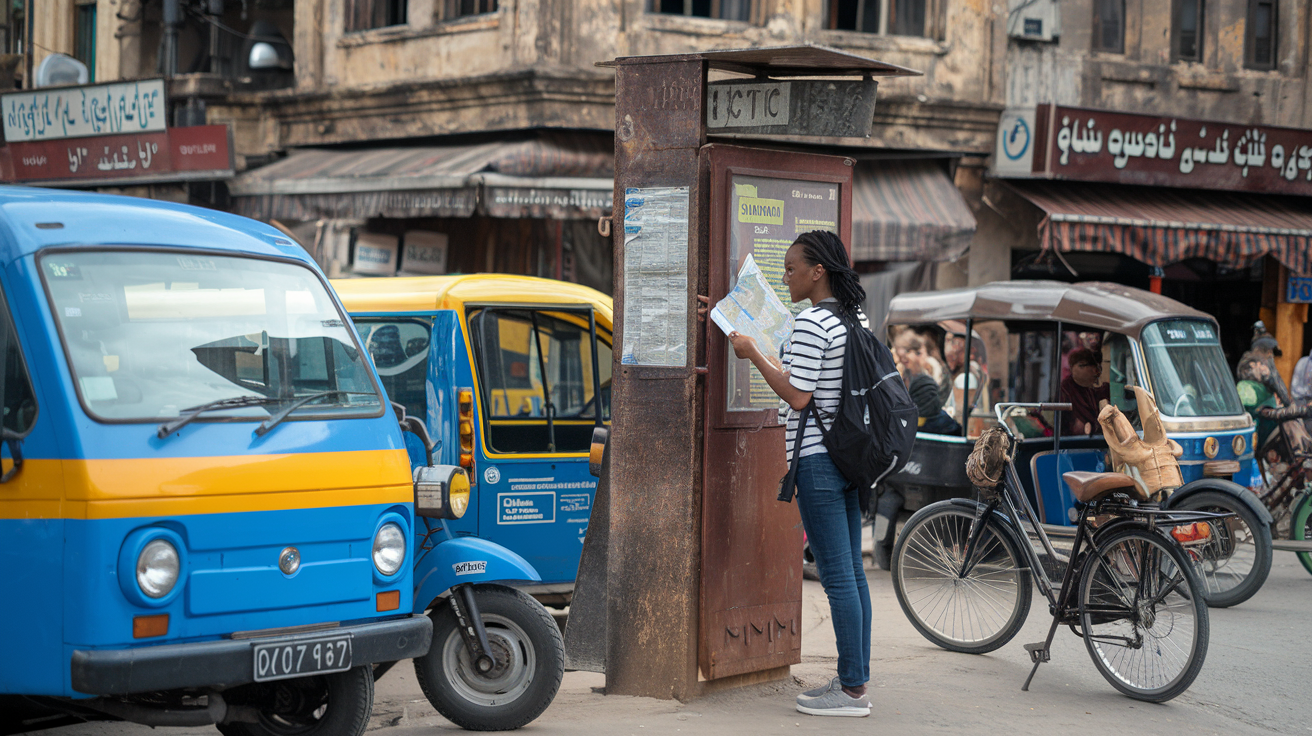
Ethiopia’s extensive bus network offers an economical way to traverse the country’s diverse landscapes. The state-run Selam Bus and Sky Bus services provide reliable long-distance routes connecting major cities. These buses are generally comfortable, air-conditioned, and equipped with onboard restrooms.
To make the most of Ethiopia’s bus system:
| Bus Type | Pros | Cons |
|---|---|---|
| Selam/Sky Bus | Comfortable, air-conditioned, reliable | More expensive, limited routes |
| Local buses | Very cheap, frequent departures | Less comfortable, can be overcrowded |
For shorter distances and intra-city travel, shared taxis and minibuses (known as “bajajs” and “blue donkeys” respectively) are the go-to options for budget-conscious travelers. These services are ubiquitous in urban areas and offer a truly local experience.
Tips for using shared transportation:
While flying may seem counterintuitive for budget travel, domestic flights in Ethiopia can sometimes be a cost-effective option, especially when considering time savings. Ethiopian Airlines offers a comprehensive network of internal flights, often at competitive prices.
Consider flying when:
To find the best deals, book in advance and be flexible with your travel dates. Keep an eye out for promotional fares, which can make flying surprisingly affordable.
For budget-friendly and eco-conscious exploration of Ethiopia’s cities and rural areas, renting a bicycle is an excellent option. Many guesthouses and small hotels offer bike rentals, allowing you to cover more ground than on foot while immersing yourself in the local culture.
Benefits of cycling in Ethiopia:
When cycling, always wear a helmet, respect local traffic rules, and be cautious on busy roads. Some popular areas for cycling include the lakeside town of Bahir Dar and the historic city of Gondar.
By utilizing these affordable transportation options, you can stretch your budget further while experiencing the rich tapestry of Ethiopia’s landscapes and cultures. As we move forward, we’ll explore budget-friendly accommodation choices that complement these economical travel methods, ensuring you get the most out of your Ethiopian adventure without breaking the bank.
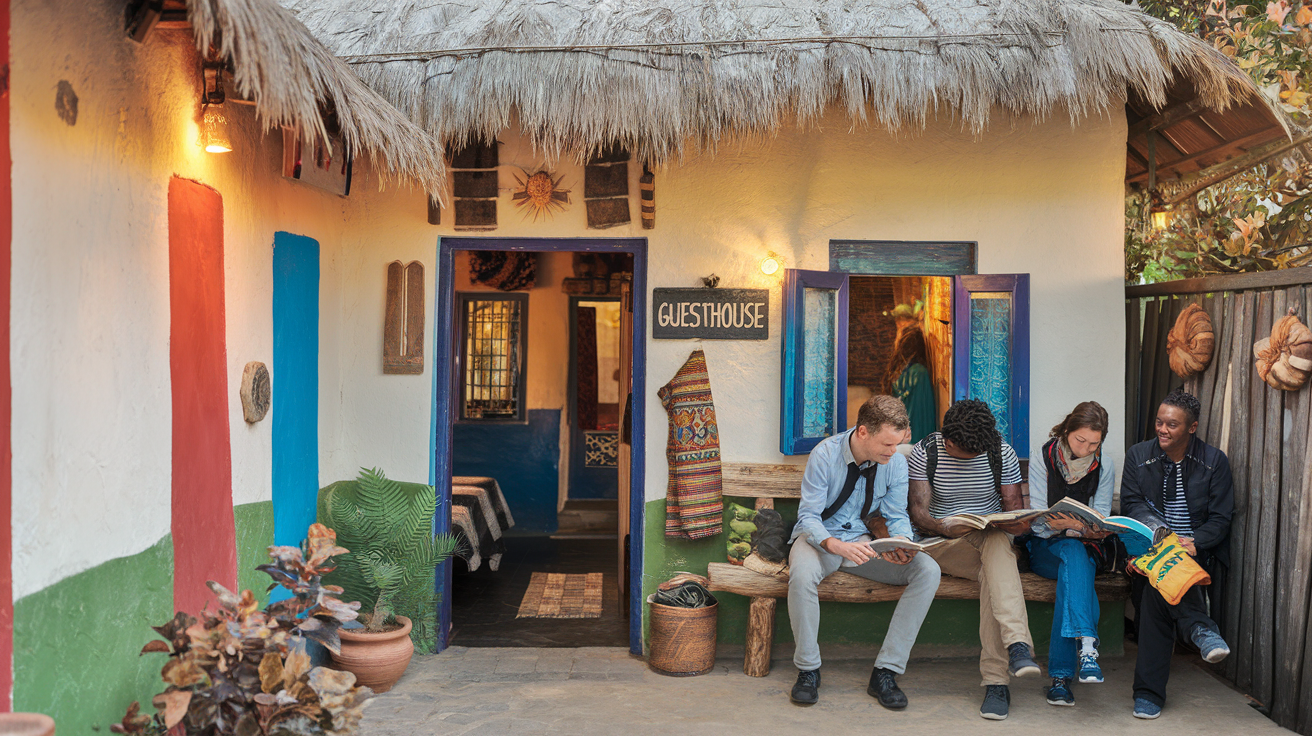
For budget-conscious travelers exploring Ethiopia, hostels and guesthouses offer excellent value for money. These accommodations provide a comfortable base without breaking the bank, allowing you to stretch your budget further.
Hostels in Ethiopia are primarily concentrated in major cities and tourist hotspots. They offer:
| City | Average Hostel Price (per night) |
|---|---|
| Addis Ababa | $8 – $15 |
| Lalibela | $10 – $20 |
| Gondar | $7 – $12 |
| Bahir Dar | $9 – $18 |
Guesthouses, often family-run, provide a more local experience:
For adventurous travelers, camping is an excellent way to experience Ethiopia’s natural beauty while keeping costs low. Many national parks and scenic areas offer camping facilities, including:
Immerse yourself in Ethiopian culture by staying with local families. Homestays offer:
To arrange homestays:
For a truly unique accommodation experience, consider staying at one of Ethiopia’s ancient monasteries. This option provides:
When choosing budget-friendly accommodation in Ethiopia, consider your priorities and travel style. Hostels and guesthouses offer convenience and social opportunities, while camping allows for closer communion with nature. Homestays provide cultural immersion, and monastery lodgings offer a unique spiritual experience. By mixing and matching these options, you can create a memorable and affordable Ethiopian adventure.
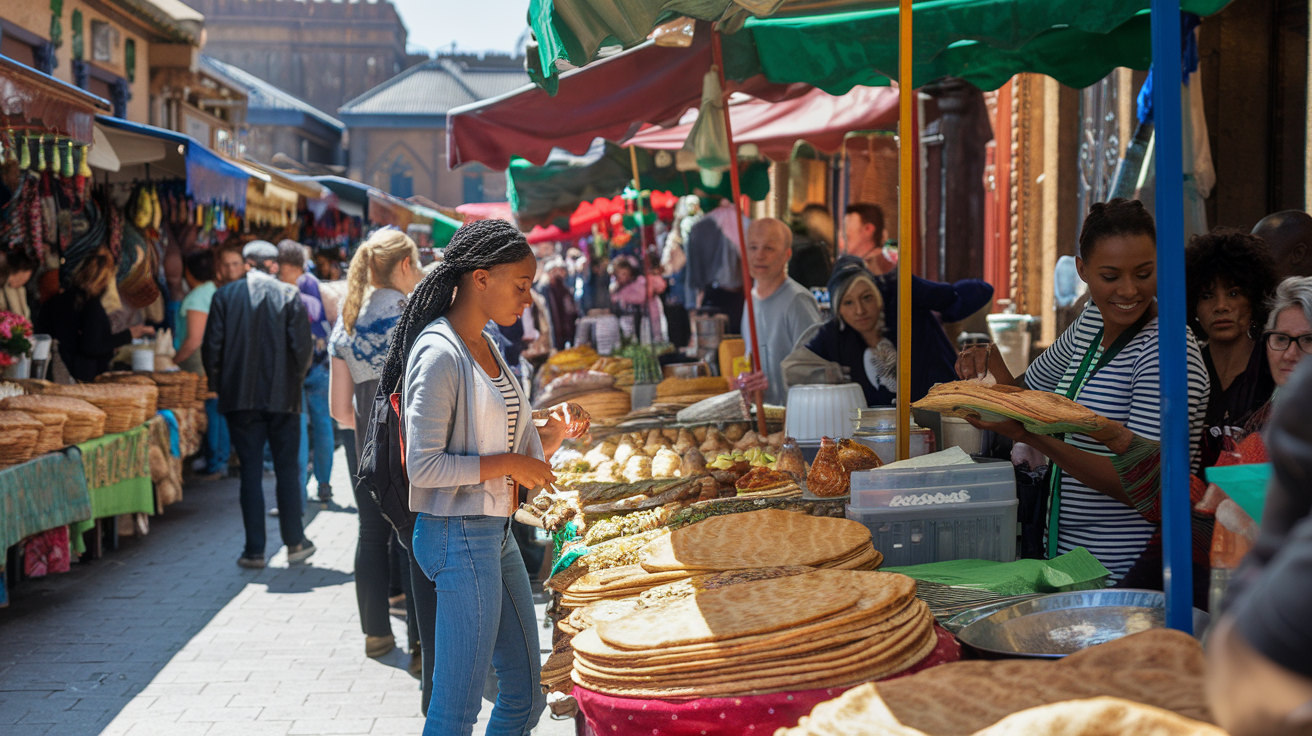
Ethiopia’s street food scene offers budget travelers a delicious gateway to local flavors. Injera, a spongy sourdough flatbread, forms the foundation of many street food dishes. Grab a piece of injera topped with spicy lentils or meat stews for a quick and affordable meal. Don’t miss out on sambusa, crispy pastries filled with lentils or meat, perfect for a satisfying snack on the go.
For the budget-conscious traveler, local markets are a treasure trove of affordable and fresh ingredients. These vibrant marketplaces not only offer a chance to save money but also provide an authentic cultural experience. Here’s a list of items you can find at Ethiopian markets:
Consider purchasing these ingredients to prepare your own meals, further reducing your food expenses.
Ethiopia, the birthplace of coffee, offers budget travelers numerous opportunities to indulge in its rich coffee culture without breaking the bank. Here’s how you can experience Ethiopian coffee on a budget:
| Coffee Experience | Estimated Cost (ETB) | Cultural Value |
|---|---|---|
| Coffee Ceremony | 50-100 | High |
| Street Coffee | 10-20 | Medium |
| Market Beans | 100-200/kg | Low |
While street food and markets offer great budget options, don’t miss out on the experience of dining at traditional Ethiopian restaurants. Many local eateries offer affordable set menus or “fasting plates” (vegetarian options) that provide a variety of dishes at a reasonable price.
Look for restaurants frequented by locals, as they often offer the best value for money. Be sure to try the national dish, injera with various wots (stews), which is not only delicious but also filling and budget-friendly.
To make the most of your dining experience while keeping costs low, consider these tips:
By exploring these diverse culinary options, you can savor the rich flavors of Ethiopian cuisine without straining your budget. From street food delights to traditional restaurant experiences, Ethiopia offers a wealth of affordable dining choices that will satisfy both your taste buds and your wallet. As we move forward, let’s explore the free and low-cost cultural experiences that will enrich your budget-friendly Ethiopian adventure.

Ethiopia’s rich religious heritage offers budget travelers an incredible opportunity to immerse themselves in history and culture without breaking the bank. Many of the country’s ancient churches and monasteries are either free to visit or charge minimal entrance fees.
While some sites may require a small fee for guided tours, exploring these architectural marvels on your own can be a cost-effective way to experience Ethiopia’s spiritual legacy.
One of the most authentic and budget-friendly ways to experience Ethiopian culture is by observing traditional ceremonies. Many of these events are open to the public and offer a glimpse into the country’s rich traditions.
| Ceremony | Frequency | Cost | Cultural Significance |
|---|---|---|---|
| Coffee ceremony | Daily | Free | Social bonding, hospitality |
| Church services | Weekly | Free | Religious devotion |
| Timkat | Annual (January) | Free | Baptism of Jesus |
Ethiopia’s diverse landscape offers budget travelers countless opportunities for free or low-cost hiking experiences. From the Simien Mountains to the Danakil Depression, nature enthusiasts can explore some of Africa’s most stunning scenery without spending a fortune.
While some national parks charge entrance fees, many hiking trails are free to access. Hiring a local guide can be an affordable way to ensure safety and gain deeper insights into the region’s flora, fauna, and culture.
Ethiopia’s vibrant festival calendar provides budget travelers with numerous opportunities to experience the country’s culture firsthand. Many of these events are free to attend and offer a unique glimpse into local traditions and customs.
To make the most of these cultural experiences, consider timing your visit to coincide with one of these festivals. Not only will you witness vibrant celebrations, but you’ll also have the chance to interact with locals and potentially enjoy free food and entertainment.
Now that we’ve explored the wealth of free and low-cost cultural experiences available in Ethiopia, let’s move on to some must-visit budget destinations that combine these elements for an unforgettable adventure.
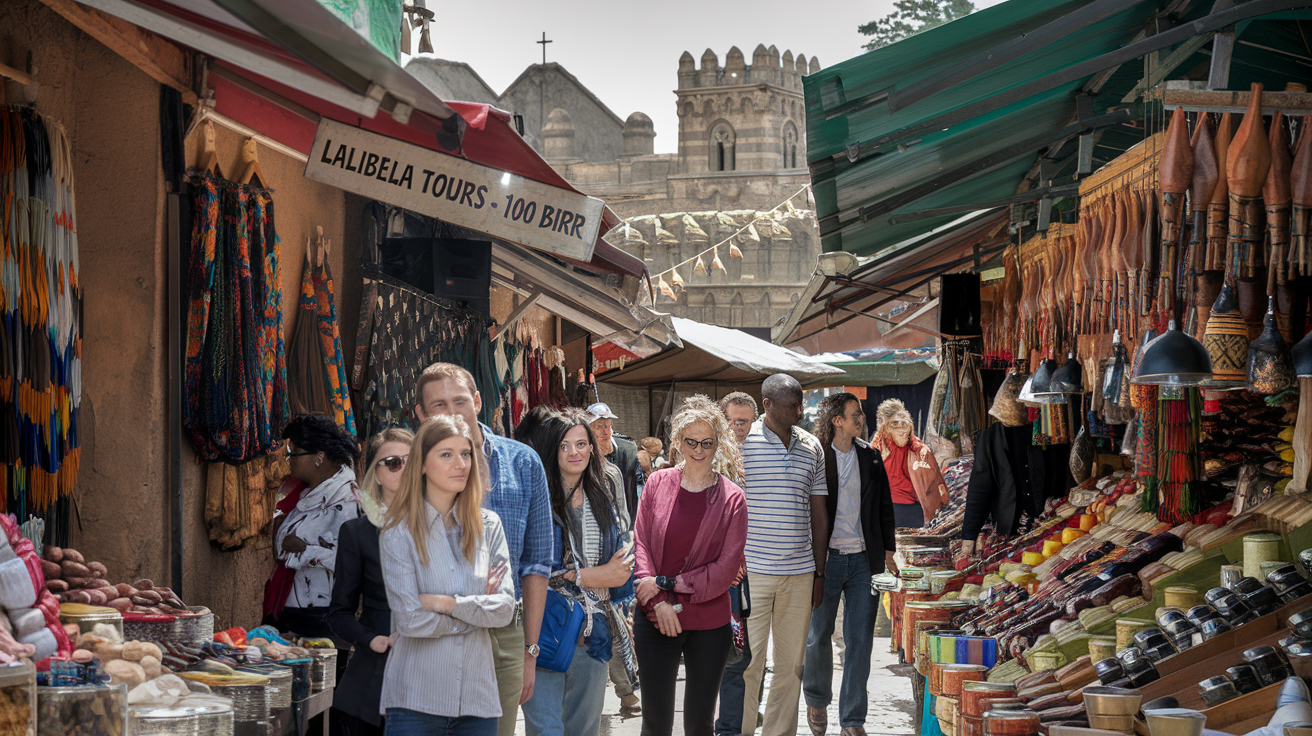
Addis Ababa, the bustling capital of Ethiopia, offers budget travelers a wealth of affordable experiences. As the political and cultural hub of the country, it’s an excellent starting point for your Ethiopian adventure.
To save money, consider using the city’s affordable public transportation system and exploring on foot when possible. Many museums offer discounted rates for students and groups.
Lalibela, a UNESCO World Heritage site, is home to Ethiopia’s famous rock-hewn churches. While entrance fees can add up, the experience is well worth the investment for budget travelers.
| Church | Highlight | Estimated time to explore |
|---|---|---|
| Bet Medhane Alem | Largest monolithic church | 1 hour |
| Bet Maryam | Intricately carved interiors | 45 minutes |
| Bet Giyorgis | Iconic cross-shaped design | 30 minutes |
Gondar, often called the “Camelot of Africa,” offers budget travelers a glimpse into Ethiopia’s royal past without breaking the bank.
Consider purchasing a combo ticket for multiple sites to save money. Many hostels and budget hotels in Gondar offer affordable guided tours.
The Simien Mountains National Park is a budget traveler’s dream, offering stunning landscapes and wildlife viewing opportunities at a fraction of the cost of other African trekking destinations.
The Omo Valley offers a unique cultural experience for budget travelers interested in Ethiopia’s diverse tribal communities.
Remember to be respectful of local customs and always ask permission before taking photographs. Many tribes now charge for photos, so budget accordingly.
As we conclude our exploration of Ethiopia’s must-visit budget destinations, it’s clear that this culturally rich country offers incredible experiences for travelers on a shoestring. Next, we’ll discuss how to stay safe while traveling on a budget in Ethiopia, ensuring you can enjoy these amazing destinations with peace of mind.

When traveling to Ethiopia on a budget, it’s crucial to prioritize your health without breaking the bank. Before your trip, consult with a travel clinic or your healthcare provider about necessary vaccinations. Some essential vaccinations for Ethiopia include:
To save money, check if your local health department offers travel vaccinations at a reduced cost. Additionally, pack a basic first-aid kit with:
Remember to bring any prescription medications you need, along with a copy of the prescription.
While Ethiopia is generally safe for travelers, being aware of common scams can help you protect your budget. Here are some tips to avoid falling victim to scams:
| Scam Type | How to Avoid |
|---|---|
| Fake guides | Use official tour operators or book through your accommodation |
| Overcharging | Always negotiate prices and know the approximate cost beforehand |
| Pickpocketing | Keep valuables secure and be aware of your surroundings |
| Fake charities | Research legitimate organizations before donating |
While English is widely spoken in tourist areas, learning a few basic phrases in Amharic, Ethiopia’s official language, can enhance your experience and help you stay safe. Here are some essential phrases:
Using a translation app on your smartphone can also be helpful. However, be mindful of data usage costs and consider downloading offline language packs before your trip.
Being prepared for emergencies is crucial when traveling on a budget. Keep these important contacts and resources handy:
Consider registering with your country’s embassy before your trip. This can be helpful in case of emergencies or natural disasters. Additionally, keep digital and physical copies of important documents such as your passport, visa, and travel insurance policy.
By following these safety tips and being prepared, you can enjoy a memorable and budget-friendly trip to Ethiopia while minimizing risks. Remember that staying vigilant and using common sense are your best tools for a safe and enjoyable adventure in this culturally rich African nation.
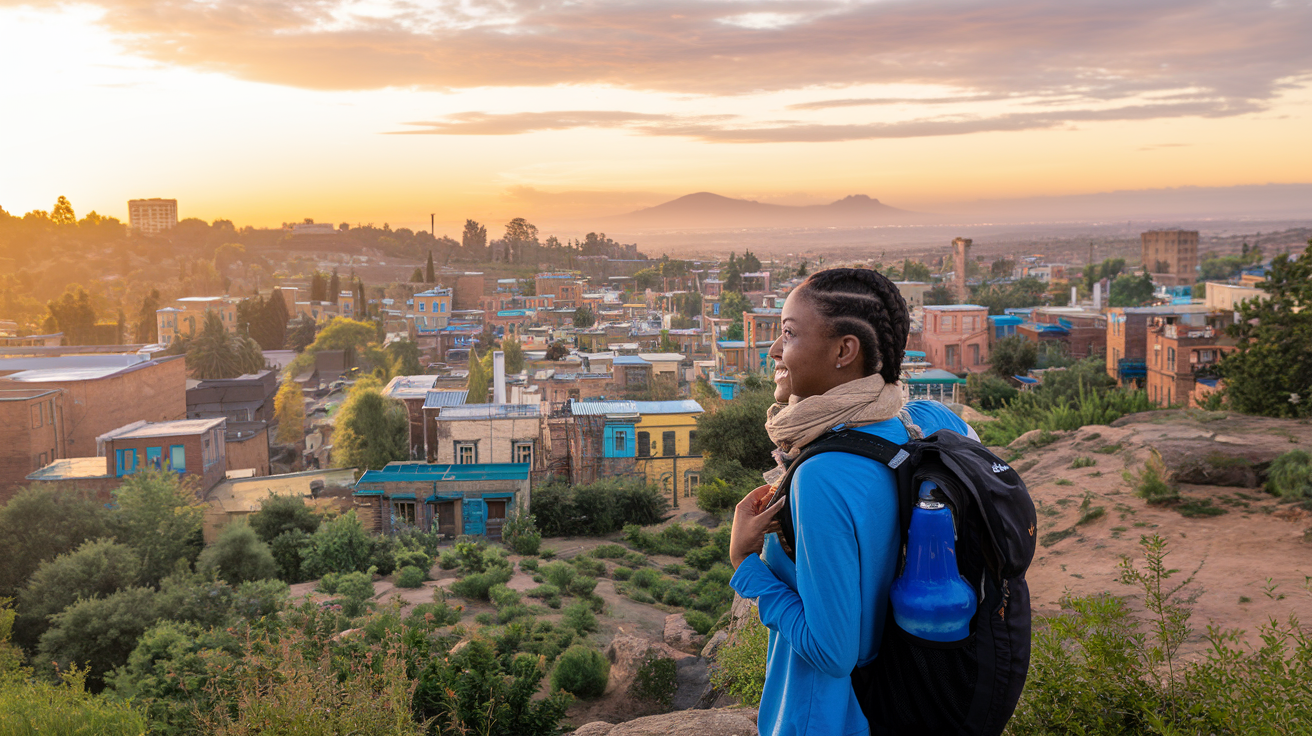
Ethiopia offers a wealth of cultural experiences and natural wonders for budget-conscious travelers. By carefully planning your trip, utilizing affordable transportation options, and choosing budget-friendly accommodations, you can explore this diverse country without breaking the bank. From savoring local cuisine at reasonable prices to immersing yourself in free and low-cost cultural experiences, Ethiopia provides numerous opportunities to create lasting memories while staying within your financial means.
As you embark on your Ethiopian adventure, remember that traveling on a budget doesn’t mean compromising on safety or missing out on incredible experiences. By prioritizing must-visit destinations and following local customs and safety guidelines, you can fully embrace the rich history, stunning landscapes, and warm hospitality that make Ethiopia a true cultural wonderland. With careful planning and an open mind, your journey through this captivating country will be both rewarding and economical, leaving you with unforgettable memories and a desire to return.